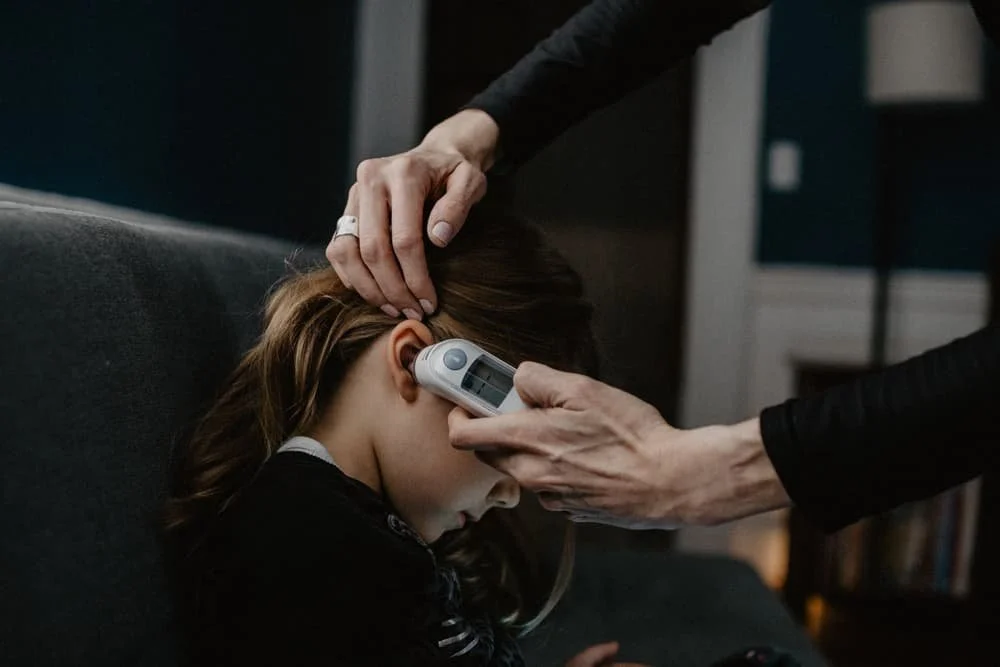Should nannies take care of sick kids?
What’s the protocol for nannies when kids are sick?
It’s a basic fact of life: kids get sick. And they get sick a lot. On average, preschool aged kids get six to eight infections a year - anything from a common cold to stomach bugs and RSV. This leaves parents with the exhausting, never-ending task of negotiating when kiddos can go back to school and preschool - and who takes care of them in the meantime.
Daycares, preschools, and schools have formal guidelines for when sick kids can and cannot go come in. In the meantime, parents have to take PTO, unpaid time off, or try to work from home during these days.
For many parents, hiring a nanny serves as a guarantee that they will not have to worry about missing work if the kids get sick. But are nannies obligated to show up to an infectious household?
Do nannies work in sickness and in health?
In general, it is expected that a nanny show up when the kid is sick. If they are home from school, the nanny will take care of the sick day and adjust the day’s tasks accordingly.
If the child is well enough to leave bed, usually the nanny will still drop off other kids at school before bringing the sick child back home. If this is not possible, usually a bit of cooperation and coordination between the parents and nanny mean everything can still be handled smoothly. Perhaps the parent stays home an extra hour to work near the child while the nanny goes to drop-off, or perhaps the parent is able to bring the child to school on the way to work, etc. A little teamwork here goes a long way, for family and nanny alike. (Click here for a comprehensive guide on working as a nanny during during cold and flu season)
Communication between nannies and families is key
We’ve said this before and we’ll say it again: as with so many other things that arise in the nanny-family working relationship, communication is key. As a parent, check in the day before or as soon as you know the child is sick. Give the nanny a chance to adjust accordingly.
When should a nanny come back after a child’s illness?
Most preschools and schools have protocols for when kids can come back after illness, and perhaps those would be helpful to be applied here as well. If the agreement is that your nanny not work while the child is contagious, a return after the child is fever-free for 24 hours is often a good guideline. If the nanny does not want to return in that time frame, often it is customary for the nanny to use their personal PTO days or request unpaid time off at that time.
What goes around comes around
One thing to take into account is what a contagious illness may mean beyond the child being sick for a day or two. Any contagious illness will likely make its way to the nanny if they come in in the thick of it. This means that you as a parent may have help while the child is sick but then risk not having your nanny around for several days after while they are going through the same illness.
As a nanny - as for anyone working in childcare - you have probably already come to terms with the fact that you run the risk of contracting more infectious diseases than your peers working in an office setting. But you still want to be sure that you are covered for those days.
By making sure a family has backup childcare and you as a nanny have paid sick days, everyone can feel more comfortable taking a gamble on the nanny potentially catching whatever cold virus is floating around. Parents can also offer their nanny a bonus PTO day for each day they come in to care for a sick day, just in case they get sick themselves as a result.
Refer back to your nanny contract
There is one way to ensure the practical details of a child getting sick doesn’t get in the way of a smooth week or working relationship: draw up a solid nanny job contract to refer back to.
By spelling out all the expectations and agreements beforehand, everyone knows what to do when the first sneeze arrives - and no one has to make an emotional gametime decision based in stress and duress.
A nanny contract can help spell out:
Expectations for when a child is sick
Paid time off and sick days for the nanny
Expectations on communication from parents regarding illness
Any nuances regarding illness, such as:
Illnesses where the nanny is not expected to come in (COVID-19, viral stomach flu)
Illnesses where the nanny is expected to come in (common cold, bacterial stomach flu/food poisoning)
A nanny job contract offers peace of mind for both parents and nannies, and ensures that everyone knows what is expected of them when the flu hits the fan. This way once the viruses are gone, there’s not a whiff of resentment to linger in their wake (but maybe a bit of a sniffle).

